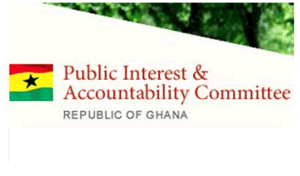PIAC lauds a decade long implementation of PRMA despite challenges
 The Public Interest and Accountability Committee (PIAC) says the implementation of the Petroleum Revenue Management Act (PRMA) has been largely impactful in the last 10 years despite some challenges.
The Public Interest and Accountability Committee (PIAC) says the implementation of the Petroleum Revenue Management Act (PRMA) has been largely impactful in the last 10 years despite some challenges.
It said among the notable achievements arising from the committee’s recommendations were the procurement of a Loss of Production Insurance by the Ghana National Petroleum Corporation (GNPC) for Jubilee, TEN, and SGN Fields and Parliament’s directive to GNPC to stop spending on non-core areas and the subsequent cancellation of the Corporation’s sponsorship deal with the Black Stars.
In addition, the Ghana Revenue Authority’s (GRA) retrieval of about $50 million through the tax audits of Kosmos Energy and Tullow Ghana, Improvements in the payment of Surface Rentals by International Oil Companies since 2017, resulting from engagements with the Petroleum Commission, Bank of Ghana, and GRA; and, Bridging the tax audit gap of International Oil Companies by GRA.
Despite these impacts, PIAC’s assessments in its Issue Paper on Ghana’s Management and Use of Petroleum Revenue indicate significant implementation bottlenecks and compliance challenges with the PRMA.
Among the challenges inhibiting effective implementation of the PRMA is the recurrence of wrongful lodgment of petroleum revenues and receipts into GRA accounts, contrary to law.
For instance, an amount of $13.52 million, which was wrongfully paid into GRA’s account in 2017 has only recently been transferred into the Petroleum Heritage Fund (PHF) as required by the PRMA, according to GRA.
The practice re-occurred in 2019, though rectified in the same year.
“This denies the PHF the needed resources for development financing. The recurring non-compliance in the reported expenditure of the Ministry of Finance to the PRMA requirement to spend at least 70 per cent of the Annual Budget Funding Amount (ABFA) on Public Investment Expenditure is another challenge.”
“Although the Ministry has been complying during budgeting, in actual expenditure, there has been non-compliance. In 2017, only 37 per cent of the utilised ABFA was used for capital expenditure and 63 per cent for the supply of goods and services, contrary to the PRMA,” PIAC said.
Again, in 2019, 55 per cent was spent on Capital Expenditure and 45 per cent on Goods and Services.
Another challenge in the implementation of the Law relates to the recurrence of unutilised ABFA. As of the end of 2019, the total unspent ABFA amounted to GH¢1.48 Billion.
This situation is worrying, especially as it is becoming a trend and corruption risk to the management and use of petroleum revenues.
Another associated challenge is the inconsistent allocation of petroleum revenue to the Ghana Infrastructure Investment Fund (GIIF), contrary to Law. The PRMA requires that up to 25 per cent of the amount allocated to Public Investment Expenditure under the ABFA shall be allocated to GIIF for infrastructure development.
Similarly, the GIIF Act identifies petroleum revenue as a funding source. Although the Fund has received $75.4 million from the ABFA since its establishment and has made significant contributions to funding strategic investment projects including Terminal 3 of the Kotoka International Airport (KIA) in Accra in 2016, there were no allocations to GIIF for 2018 and 2019 consecutively.
According to the Fund, an amount of $5.51 million representing 18.37 per cent of its investment of $30 million in the KIA Terminal 3 Project was realised between 2017 and 2019 as returns, demonstrating the viability of the investment.
Closely linked with the above challenges is the late enactment of subsidiary legislation to the PRMA. Although the PRMA under Section 60 provides for the Minister for Finance to make regulations for the effective implementation of the law, it was only in 2019 that the provision has been acted upon, resulting in the enactment of the L.I. 2381.
PIAC said a timely enactment of the Regulations could have better operationalised the PRMA to prevent most of the compliance challenges.
“Being mindful of the fact that petroleum is a finite resource, PIAC will continue to work with the government and other relevant stakeholders to ensure the efficient management and use of both the resource and revenue.
Source: GNA
